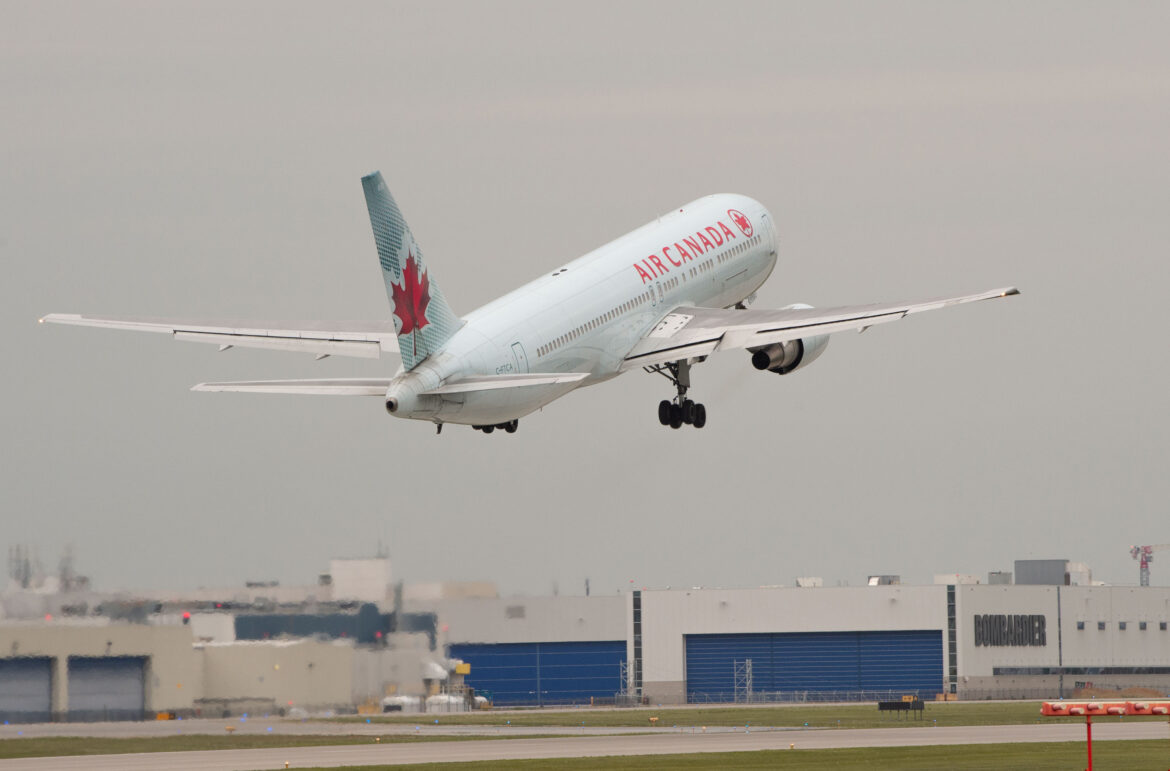Advertiser & Editorial Disclosure: The Bulkhead Seat earns an affiliate commission for anyone approved through the links below. This compensation may impact how and where links appear on this site. We work to provide the best publicly available offers to our readers. We frequently update them, but this site does not include all available offers. Opinions, reviews, analyses & recommendations are the author’s alone, and have not been reviewed, endorsed, or approved by any of these entities.
Air Canada recently revealed its plans for the aircraft that will be operating in its fleet over the next few years. The Canadian airline is expecting to bring 90 aircraft into service between now and 2029, but surprisingly two of those planes are 33-year-old Boeing 767-300ERs that it retired during the pandemic.
Air Canada is bringing the passenger Boeing 767 out of retirement.
The airline retired its Boeing 767-300ER in 2020, but now plans to bring two aircraft back into its passenger fleet in 2025.
Air Canada previously flew the 767 on domestic, US, and other international routes. pic.twitter.com/yoNTrOR8Ic
— Ishrion Aviation (@IshrionA) November 2, 2024
As noted above, Air Canada expects to bring on the following:
- Boeing 787-9 (one in 2025)
- Boeing 787-10 (18 between 2026 and 2029)
- Boeing 767-300ER (two in 2025)
- Boeing 737 MAX (five in 2024 and seven in 2025)
- Airbus A321XLR (two in 2025 and 28 between 2026 and 2029)
- Airbus A220 (two in 2024, nine in 2025, and 16 between 2026 and 2029)
Our @Boeing 767 fleet operated its final passenger flight last night from Montreal to Toronto, closing the chapter on our 38-year history with this fleet. Learn more about the #B767 journey with us here: https://t.co/1o07L1RTJW #ACmedia pic.twitter.com/rMIqcBm11p
— Air Canada (@AirCanada) June 3, 2020
These Boeing 767-300ERs were retired in June 2020 as Air Canada did not need the capacity during the pandemic. The airline began flying this model back in 1982 and flew a total of 65 of these aircraft since then. The few remaining in the fleet are currently used for cargo flights.
Lucky at One Mile at a Time reports that both aircraft re-entering service were housed in long term storage at Pinal Airpark (MZJ) in Arizona. Earlier this year they were flown to John C. Munro Hamilton International Airport (YHM) in Ontario, Canada to be prepared for future commercial flights. The aircraft are equipped with 24 Business Class and 187 Economy Class seats.
Air Canada has not announced what routes these aircraft will serve and it’s interesting to see them fill a capacity need with formerly retired aircraft. Boeing and Airbus have both had recent delays in production. This is a clever way to fill a gap.
Anthony’s Take: Kudos to Air Canada for finding a creative way to handle delayed aircraft deliveries. I wonder if other airlines have aircraft sitting in the desert that they could pull into service.
(Featured Image Credit: Air Canada.)
User Generated Content Disclosure: The Bulkhead Seat encourages constructive discussions, comments, and questions. Responses are not provided by or commissioned by any bank advertisers. These responses have not been reviewed, approved, or endorsed by the bank advertiser. It is not the responsibility of the bank advertiser to respond to comments.
Advertiser & Editorial Disclosure: The Bulkhead Seat earns an affiliate commission for anyone approved through the links above This compensation may impact how and where links appear on this site. We work to provide the best publicly available offers to our readers. We frequently update them, but this site does not include all available offers. Opinions, reviews, analyses & recommendations are the author’s alone, and have not been reviewed, endorsed, or approved by any of these entities.
